Ankara needs to create regional alliances to resist new offensives from Washington.
Ankara needs to create regional alliances to resist new offensives from Washington.
Trump’s second presidency term has begun.
What are the key characteristics that differs Trump from his opponents? How does his presidency relate to the rise of a multipolar world? What direction will his policies on West Asia, Türkiye and Syria take, and what factors will shape them? What steps has the Turkish government taken so far, and what should it do next?
UWI author historian and political scientist Associate Professor Mehmet Perinçek analyzed these questions for our website.
——
What paved the way for Trump?
The most important aspect of Trump’s foreign policy for us is his opposition to the globalists. What does Trump say now? He says, “Instead of using our energy, resources, and money to impose order on the world, let’s focus on solving the problems at home and in our own region”.
It’s also crucial to highlight the role of global resistance in bringing the United States and Trump to this point. I mean, it is not that one-day, Trump woke up and said, “Let’s turn inward or we’ve already spent so much money and resources in Afghanistan and the Middle East.” Global developments, such as the shift of the world economy towards the Pacific and Eurasia, the failure of the U.S.’s unipolar world project, the strengthening of the multipolar world, and the emergence of multipolar world organizations like the Shanghai Cooperation Organization as centers of attraction and power, all played a key role.
The oppressed and developing world
At the same time, many of the US’s plans, from Taiwan to Ukraine, also Great Kurdistan Project and the Greater Middle East Project faced failure. The strength and unity of the oppressed and developing world forced the US to acknowledge the reality of the world. The reality of a multipolar world was forced upon the US, and as a result, Trump’s ideas gained more ground, or rather, those ideas became inevitable for Trump.
If we look back at Trump’s first term, he had similar ideas, but he wasn’t able to implement them as much. Some steps or ideas were brought forward, but they couldn’t be put into practice much. This was because the balance of power within the US and in the world were different at that time. Now, those balances have shifted, making Trump’s arguments more valid. Russia’s operation in Ukraine, played a significant role in this. The US’s plan to encircle Russia through Ukraine suffered a major blow.
China, of course, has not only strengthened its economy but also achieved more significant military successes. The US had a shameful end to its involvement in Afghanistan, a disaster. I mean, the images of people running to escape by plane were seen by the whole world. All of this made Trump’s ideas even stronger.
Of course, the state of the economy also played a crucial role. The US fell deeper into debt. In the Western and the Atlantic press, there’s not a single day when the alarm bells aren’t ringing about the US’s debt. Forget about the media writing about it, even Trump and Elon Musk every day talk about how many millions of dollars the US owes, and they express serious concerns about it.
The US couldn’t suffocate or isolate Russia with economic sanctions. On the contrary, sanctions on Russia hit the West harder while Russia found much better and new partnerships in Eurasia. The Russia-China relationship has grown stronger, in terms of military, political, and economic cooperation. Together, they gained power against dollar hegemony. All of this created a more favorable environment for Trump to implement his policies or ideas, compared to his first term.
So now that Trump is back in power, he will take certain steps regarding Ukraine. That’s obvious. Negotiations between Russia and the US will start. How positively these talks will progress and whether they’ll lead to a quick peace is something that only time will tell. But at least now there’s a counterpart for Russia to sit down and negotiate with in the US. This wasn’t possible with the globalists or with Biden’s team. So, we’ll see certain developments in Ukraine in the coming days.
And also, Trump is not taking as aggressive a stance on China as he did in his first term. He has to be more realistic about that. And this is really important: He has no choice but to be realistic. Why? Because China, with its economy, military, and international alliances, showed that it wasn’t going to fall victim to the US. In fact, China developed its relations even further in West Asia, the Black Sea, Africa, and various other regions. It became a country capable of intervening in policies and providing solutions. The idea to first isolate China, and then to confront with Russia didn’t work out in Trump’s first term. Now, in his second term, Russia-China relations have become much stronger. For this reason, it seems that Trump won’t be able to approach China with the same aggression or bluntness he did before.
Trump’s West Asia policy
Now, let’s turn to the point that’s important to us, the one related to Türkiye. On one hand, Trump emphasizes turning inward. He sees a defeat in Ukraine and suggests ending support for Ukraine. He can’t act aggressively towards China. But, of course, he still has a more aggressive stance when it comes to his closer region, like Greenland and South America. While he seems ready to take steps back in Ukraine and with China or in other regions, the question is: what kind of approach will he take in West Asia? That’s a key point. Looking at his policies, we can see that they won’t differ much from Biden’s from the people he has appointed to positions. When we look at his appointments, such as his Secretary of State and others, they are all aggressive and proactive names when it comes to West Asia or the so-called Kurdistan project. We also see a line that continues to support Israel and oppose Palestine. This is despite a major success for Palestine, a military victory. After this success, Trump had to push Israel into a ceasefire. However, we don’t see any change in West Asia policy, especially regarding Syria.
Why the Turkish government couldn’t achieve a change
Why don’t we see a change?
We can attribute it to the Turkish government’s stance. Why? Because of its economic alignment with the US funds, the London banks. Additionally, the Turkish government’s involvement in the recent developments in Syria, its relationships with HTS, and the role it played in the fall of Assad, all those are tied to this line. Furthermore, the revival of a new process in Türkiye triggering of a path that could destroy Türkiye’s territorial integrity is also part of this line. The efforts to reintroduce a new constitution that undermines the national state should be added to this list.
In sum, Turkish government’s stance didn’t force Trump to step back from Biden’s policies. On the contrary, it presented him with opportunities in West Asia to adopt an even more aggressive stance. What forced American imperialism – Trump, too, is a representative of American imperialism and American oligarchy – to step back in certain regions? It was the fact that they couldn’t break through the wall, couldn’t push forward and faced a front resisting. But when it came to West Asia, specifically Syria, they had a Turkish government that encouraged aggression.
In fact, I can say this very clearly: If Türkiye had agreed with Russia, Iran and Assad before the regime change in Syria, and had made a cooperation to eliminate the terrorist groups in Idlib and the eastern side of the Euphrates, today Trump’s team would be discussing leaving West Asia and Syria. But unfortunately, Türkiye’s government created such a favorable environment for them regarding the PKK terrorism, the so-called Kurdistan project, the Second Israel project. What determines the US’s policy is the power created by the forces opposing them. If you don’t create a resistance point that is equivalent to the pressure coming from Washington -both domestically and internationally, in terms of alliances- then they will not back off. But when you show resistance, like what happened in Ukraine or on issues related to China, by creating power economically, militarily, politically, and in terms of international alliances, the US will have to accept your terms.
Türkiye loses allies
In this regard, the recent developments are an important lesson for Türkiye. Rubio, the new US Secretary of State, Trump’s appointee, clearly threatened the Turkish government: “Don’t think our policies are going to change. Don’t think you’ll benefit from this”. But the same government is saying they will distance from Biden’s policies on issues like Ukraine. Why? They found an isolated Türkiye. They found a Türkiye that lost its most important allies, Russia and Iran by falling into the trap in Syria. They found a HTS government in Damascus that is directed by them. They found a fertile ground for the PKK/PYD in Syria. HTS is offering autonomy to the PKK. Does the PKK accept it? No, they want more. Because the environment has become such that they aren’t satisfied with autonomy. Now, in this environment, the US of Trump continues to follow Biden’s West Asia policy. The fault here lies with the Turkish government. If the Astana process hadn’t been sabotaged, we wouldn’t be seeing this line in West Asia from Trump’s team today.
This is true not only for West Asia, but also for the Eastern Mediterranean. Because an isolated Türkiye would also be isolated on the Cyprus issue and in the Eastern Mediterranean. This would certainly whet the appetite of imperialist powers. Imperialist powers understand only one thing: power, the use of force and the power created by international alliances.
Trump’s presidency presents an opportunity, but in order to seize this opportunity, Türkiye needs to fortify the domestic front and strengthen international alliances.







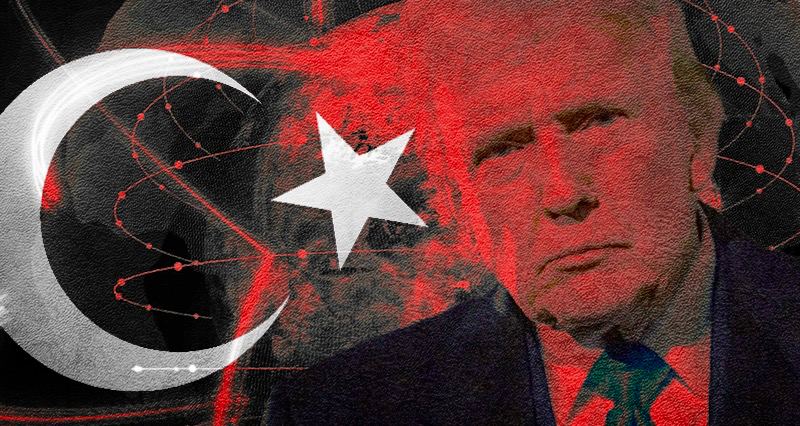
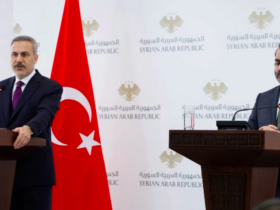
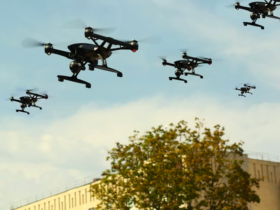

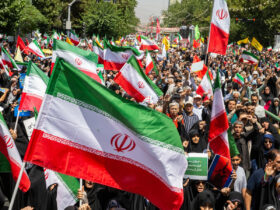
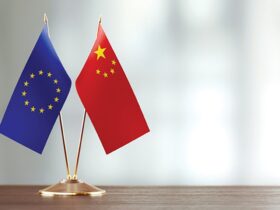
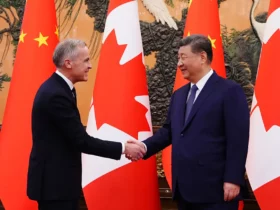
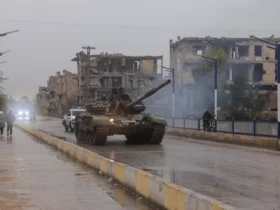


Leave a Reply